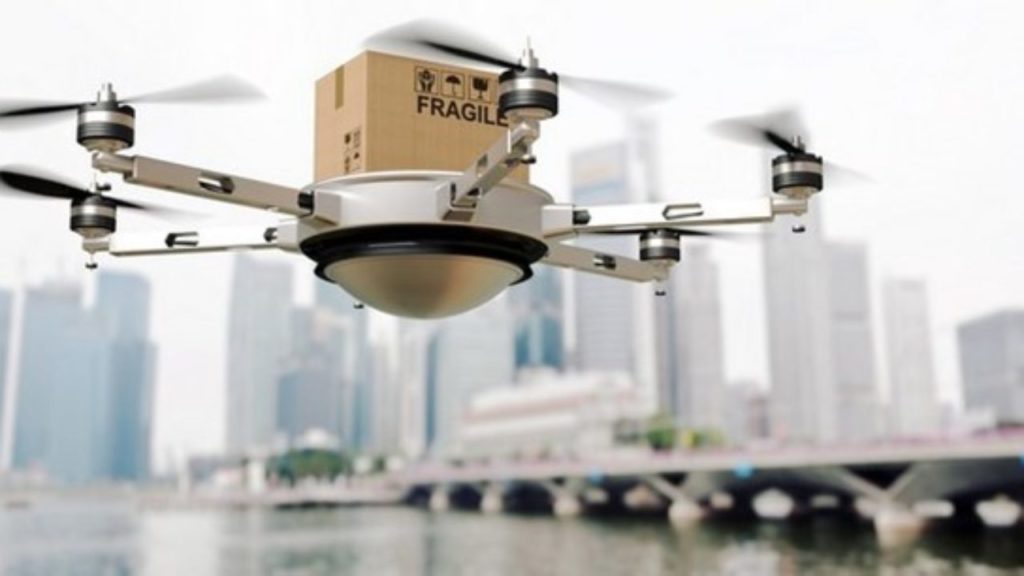Govt Bans Drones For Delivering Food, Online Orders: Setback For Amazon, Swiggy, Zomato?

Govt Bans Drones For Delivering Food, Online Orders: Setback For Amazon, Swiggy, Zomato?
According to the rules set by the ministry, drones might soon get approval to do beyond visual line of sight (BVLOS) operations. Last week, a start-up Asteria Aerospace gave approval to 13 consortia including delivery startups like Dunzo, Swiggy and Zomato to test fly BVLOS drones after Directorate General of Civil Aviation (DGCA) had given the go-ahead a little over a year.
In the recent development, clearing the air around the delivery of orders through drones, the ministry of civil aviation has published the draft Unmanned Aircraft System Rules, 2020. The draft rules prohibit ‘carriage of payload’ as well as ‘dropping of articles’ by unmanned aerial vehicles.
Unmanned Aircraft System Rules 2020 Might Get Finalised By July!
Way back in August 2018, at a press conference to announce rules for commercial use of drones, that the then Minister of State for Civil Aviation Jayant Sinha had stated of starting trials for VLOS operations. Nearly 2 years later, the trials are yet to conclude.
The Unmanned Aircraft System Rules, 2020, were published on June 2 for importing, manufacturing and owning drones as well as for drone ports, or airports for drones.
The ministry has invited comments from stakeholders within 30 days, after which the rules will be finalised. While calling the draft as a great step, the Drone Federation of India urged that the regulators and the industry need to keep working hand-in-hand to operationalise these rules and regularise drone activity in India as soon as possible.
The draft rules says, “No Unmanned Aircraft shall carry any payload, save, as specified by the director-general.” An official of the Ministry of Civil Aviation, too, said that a separate set of rules which will enable use of drones for e-commerce or delivering medical supplies may take at least a year. This time-frame may be too optimistic, as regulatory clearances are slow and tardy.
Due to these rules, the plans for facilitating deliveries of hyperlocal delivery service providers Dunzo, Swiggy and others may hit a deadend, as of now.
Meanwhile, like air traffic control, DGCA is expected to come up with an Unmanned Aircraft Traffic Management System, which will work towards the prevention of drone collision.
It seems like delivery by drones in India is quite far despite the DGCA’s nod to delivery apps like Swiggy, Zomato, Dunzo for trials.
What Other Rules Are Stated In The Draft?
According to the draft, a ‘Certificate of Manufacture’ for drones is going to be issued by testing laboratories or organisations approved by the DGCA for both made in India or imported drones. This means the rules also bring drone traders under the scope of the aviation ministry.
Drones weighing over 300 kgs will only need to apply for this certificate. However, the draft has made it very clear that no drone in India will be allowed to fly without a Unique Identification Number (UIN).
Meanwhile, the draft has set up a maximum speed limit for drones at 15 metres/second. The drones are only allowed to fly at a maximum height of 15 meters and within the range of 100 meters from the remote pilot.
The rules propose setting up of drone ports which are going to be similar to airports. For using these ports, drone operators will have to take necessary permissions for the arrival, departure, surface movement and associated maintenance or commercial activities of drones. Although the government drone operators don’t need any approval from DGCA for using the ports.
Meanwhile, the government has also continued its no permission no take-off (NPNT) protocol. DGCA will only issue the licenses to drone operators which are NPNT compliant.
The ministry has also made it mandatory for all the operators to insure their drones via third-party drone insurance companies. This will cover the liability that may arise in case of accidents.

Comments are closed, but trackbacks and pingbacks are open.